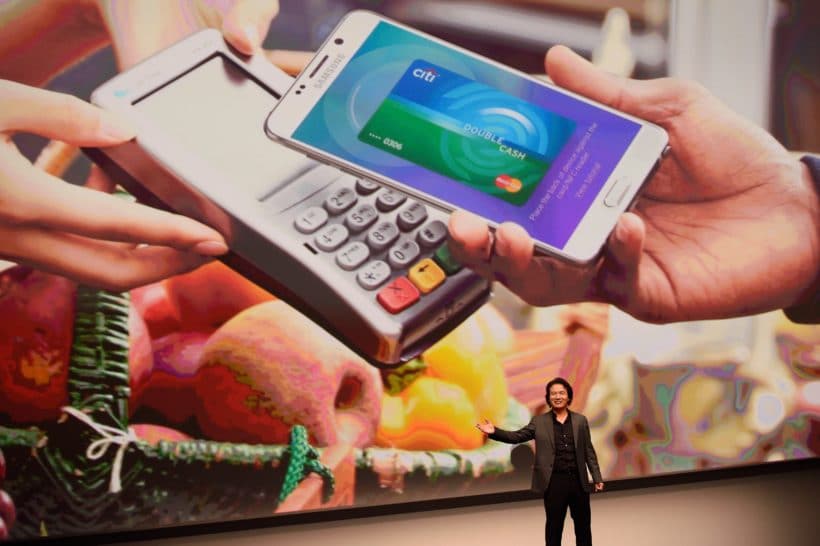
A 2020 survey showed that 96% of African banks see digital transformation as “one of the most important factors in their bank’s growth strategy”. Despite this clear understanding of the need for digitalization, the process is proving slow for the continent’s traditional banking institutions, who still require their customers to submit paper documentation for almost every type of banking activity.
Having been at the center of financial transactions for centuries, banks might see themselves immune from the whims of technological progress, but, in truth, the worst thing the banking sector can become is complacent. Competition from telco and fintech companies, as well as the effects of the coronavirus pandemic has brought African banks to a crossroads in regards to digitalization.
Disruption Economy
In the era of digital disruption, sectors who are unable or unwilling to evolve place themselves in danger from the pressure of new, more client-focused services. Over the last two decades, established sectors like print media, travel agents, booksellers, hotels and taxi services were all deeply affected by competition from digital companies like Travelocity, Amazon, Airbnb or Uber. Most of these sectors could have avoided disaster by implementing a more digital-friendly and client-first approach to their business. Case in point, while untold numbers of newspapers around the world were forced to shut down by plummeting sales, the most savvy of publications quickly pivoted to online publishing, where they continue to thrive.
The disruption economy has proven time and again that when traditional institutions don’t jump at the opportunities brought about by the digital age, others will. In Africa, where 57% of the population does not use traditional bank services, there is a huge opportunity for growth, particularly as more and more Africans are starting small businesses.
The immense popularity of mobile money, electronic wallets that are linked to a phone number, is proof of that. With over 300 million mobile money accounts across the continent, Africa is leading the world in the adoption of this technology. In 2020 alone, almost $500 billion were transferred in Africa through mobile money, placing a large chunk of financial transactions into the hands of telecommunication companies.
But mobile money, while easy to use, is not a long-term solution for the unbanked. Unlike traditional banking systems, mobile money does not enjoy the trust of regulators and has no systems in place to avoid fraud or money laundering. Research shows that unbanked customers who begin using mobile money will want more complex banking services later on, seeking stronger customer protection. Banks should use this to their advantage, offering traditional services like savings accounts to mobile money clients, while offering the sort of convenience that those clients have become accustomed to.
The last few years have also seen a surge in neobanks, digital-only fintech companies that are challenging traditional banks, being founded in countries like South Africa, Uganda, Nigeria and Egypt. With a rapid increase in smartphone ownership and internet coverage, the ease with which one can open a digital bank account makes the option very appealing, particularly for those living in remote or rural regions. The speedy digitalization of Africa means that a move which would have been impossible ten years ago might become indispensable ten years from now.
The Coronavirus Factor
While the trend of digitalization has been nudging companies in that direction for years, the Covid-19 pandemic accelerated the process to an unprecedented level. Across the world, billions of people found themselves unable to leave their home for weeks and having to use the internet for hitherto offline activities. The first few months of the pandemic in particular saw both users unused to access online services and institutions unused to providing them scramble to adapt to the new way of doing business. By some metrics, up to seven years-worth of digitalization efforts were compacted in the first half of 2020.
The pandemic should offer African banks the perfect opportunity to step up their efforts in this regard, with demand for digital banking services at an all-time high. In Nigeria, where banks were quicker to digitize than in other places on the continent, the volume of digital transactions jumped by 40% in the second quarter of 2020. Kenya, where the use of mobile money was wide-spread before the pandemic, similarly had an easier time adapting to digital banking services when the need arose.
Some of the banks’ reticence in shifting to digital can be blamed on the strict and antiquated bureaucratic regulations that some African legislatures impose, but, in this regard as well, the coronavirus crisis shifted perceptions, not only among businesses and customers, but also among regulators and politicians.
Most experts agree that the digitalization drive will continue in the post-pandemic world and will be an important factor in the recovery efforts that will follow. Rather than being a peak, 2020 will be seen as a turning point in this regard, the moment when online services became truly and unambiguously mainstream.
Traditional banking is not going anywhere, but…
The perfect storm created by the expanding access to the internet and the coronavirus pandemic has ushered in an age of unprecedented interest in digital services. Like all such turning points in history, it will prove a cruel and punishing test for established institutions, who must adapt in order to survive.
The African banking world is already seeing strong competition from easy-to-use and client-centric services like mobile money and neobanks. Banks would do well to ask themselves what made those services so popular in the first place and try to adopt similar tech solutions.
Traditional banking is not going anywhere. No disruption technology will manage to uproot the entire sector. But individual banks risk being swept away if they are unable to keep up the pace. Similar to the case of print media, those institutions that embrace digitalization early and enthusiastically have the highest chance of survival. In the African banking sector, the next few years will determine who will sink and who will swim.
Matthijs Eijpe, regional VP EMEA at Backbase